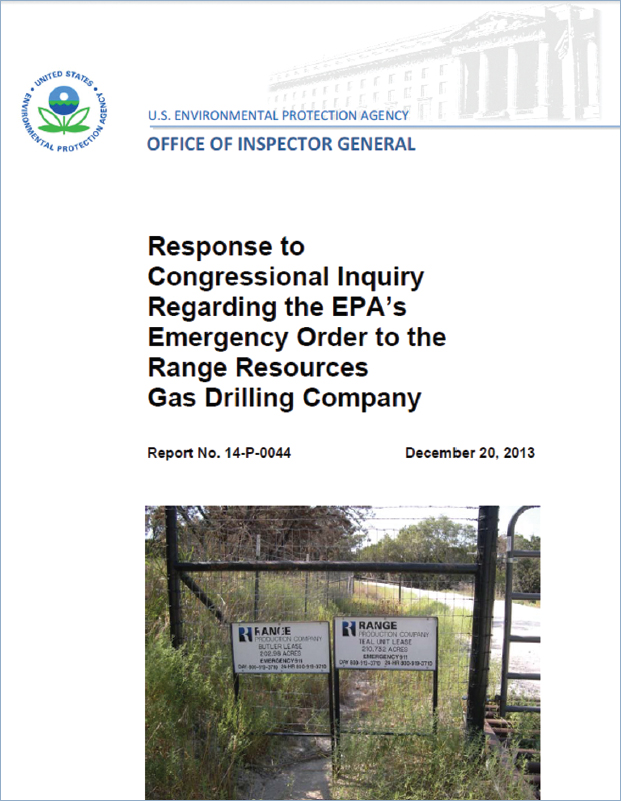DECIDING TO WRITE A REPORT.
DECIDING TO WRITE A REPORT. As you might guess, reports make up one of the broadest genres of writing. If you use Google to search the term online, you will turn up an unwieldy 4.6 billion items, opening with dictionary entries and the Drudge Report and moving on to sites that cover everything from financial news to morbidity studies. Such sites may not resemble the term papers, presentations, and lab reports you’ll prepare for school. But they’ll share at least some of the same goals (for more on choosing a genre, see the Introduction).

This report was issued by the EPA’s Office of Inspector General, in response to a Congressional inquiry about an EPA emergency order against a gas drilling company. The report includes an “At a Glance” page describing the report’s background and results, before the detailed full report, which includes visual aids such as a MAP and a chemical analysis chart.
U.S. Environmental Protection Agency and the Office of the Inspector General/Cover photo: Outside the Range Resources’ Butler and Teal hydraulic fracturing well sites. EPA OIG photo.
Present information. People read reports to discover what they don’t already know or to confirm what they do. So they’ll expect what you offer to be timely and accurate. Sometimes, information you present will, in fact, be new (as in news), built upon recent events or fresh data. But just as often, your academic reports will repackage research from existing sources. Are dogs really color-
Find reliable sources. The heart and soul of any report will be reliable sources that provide or confirm information — whether they are “high government officials” quoted anonymously in news stories or scholarly articles listed in the bibliographies of college term papers. If asked to write a report about a topic new to you, immediately plan to do library and online research. (find a topic)
The information in reports may also come from careful experiments and observations — as would be the case when you prepare a lab report for a biology or chemistry course. Even personal experience may provide material for reports, though observations and anecdotes of this kind usually need corroboration to be convincing.
Aim for objectivity. Writers and institutions (such as newspapers or government agencies) know that they lose credibility when their factual presentations seem incomplete or biased. Of course, smart readers understand that reports on contentious subjects — climate change, energy policy, or health-
Present information clearly. Readers expect material in reports and reference material to be arranged (and perhaps illustrated) for their benefit. (think visually) So when you put forward information, state your claims quickly and support them with data. You’ll gain no points for surprises, twists, or suspense in a report. In fact, you’ll usually give away the game on the first page of most reports by announcing not only your thesis but also perhaps your conclusions.